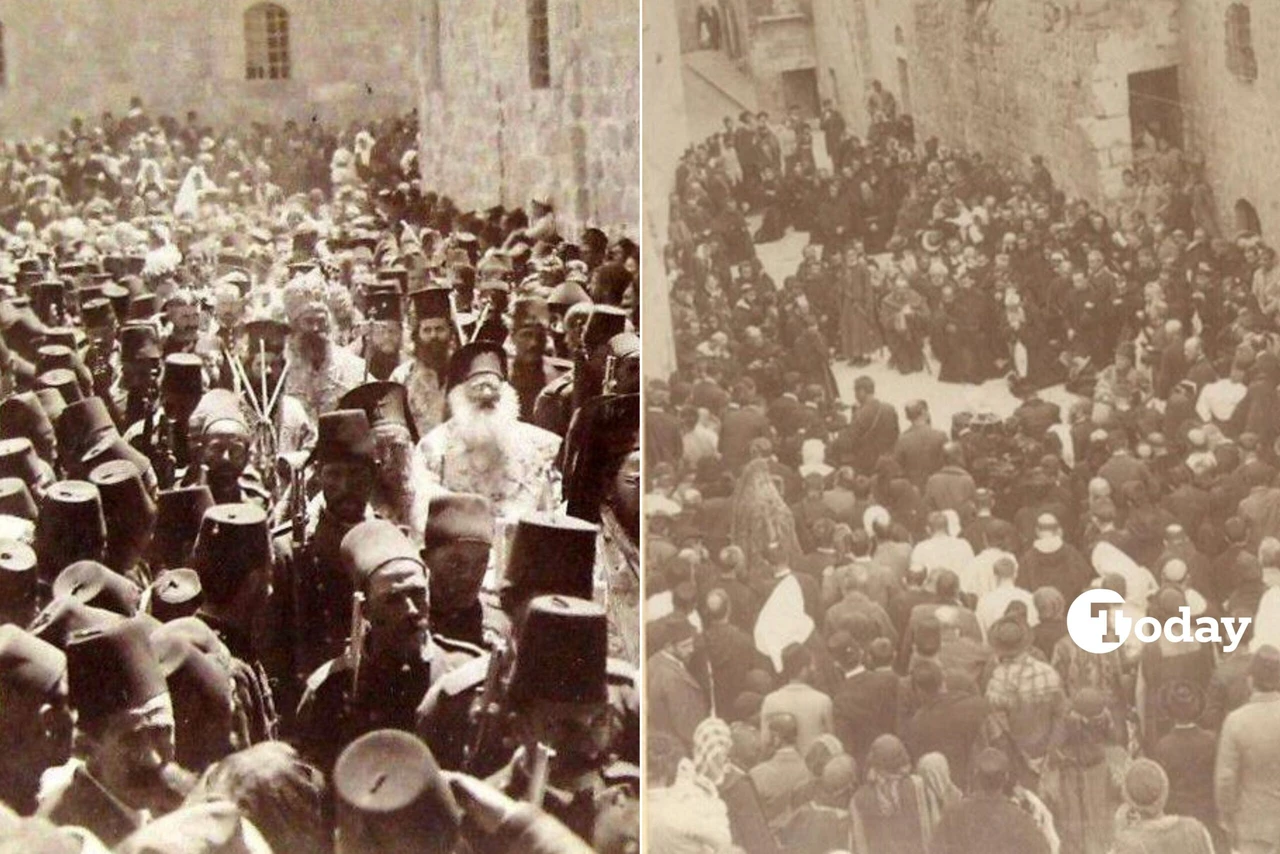Street interviews in Türkiye: Popularity, controversy and gov’t scrutiny
 RTUK President Ebubekir Sahin said they plan to regulate street interviews (via Indigo Haber)
RTUK President Ebubekir Sahin said they plan to regulate street interviews (via Indigo Haber)
In recent years, street interviews, commonly known as “vox pop,” have surged in popularity across Türkiye, becoming a prominent feature of the nation’s media landscape. These interviews provide a platform for ordinary citizens to voice their opinions on various social, political and economic issues, often presenting perspectives that diverge from those showcased by mainstream media outlets.
This burgeoning trend has not gone unnoticed by regulatory bodies, particularly the Radio and Television Supreme Council (RTUK), which is currently devising new regulations to oversee and control the content and dissemination of these street interviews.
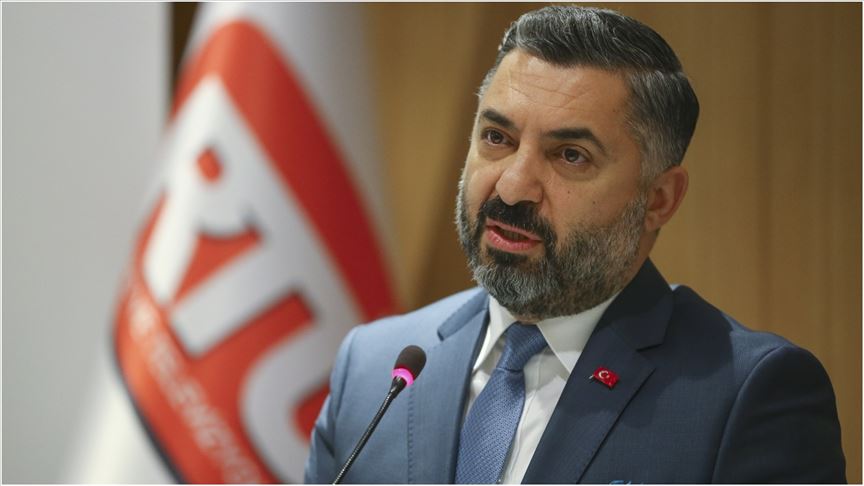
RTUK’s new regulatory measures
RTUK Chairman Ebubekir Sahin has been vocal about his concerns regarding the potential for street interviews to disseminate misinformation and manipulate public opinion. In recent statements, Sahin emphasized:
- Manipulation of public opinion: Street interviews, especially those broadcasted on social media platforms, can be strategically used to influence viewers’ perceptions, often aligning with specific economic or political agendas.
- Disinformation risk: The council believes that these interviews contribute to the spread of disinformation, which can exacerbate sociological conflicts within society.
- Monitoring and regulation: RTUK has initiated efforts to monitor these broadcasts closely and is considering implementing stricter regulations to ensure the content adheres to established journalistic ethics and standards.
This move by RTUK has sparked a debate over the fine line between regulating harmful content and preserving freedom of expression, a cornerstone of democratic societies.
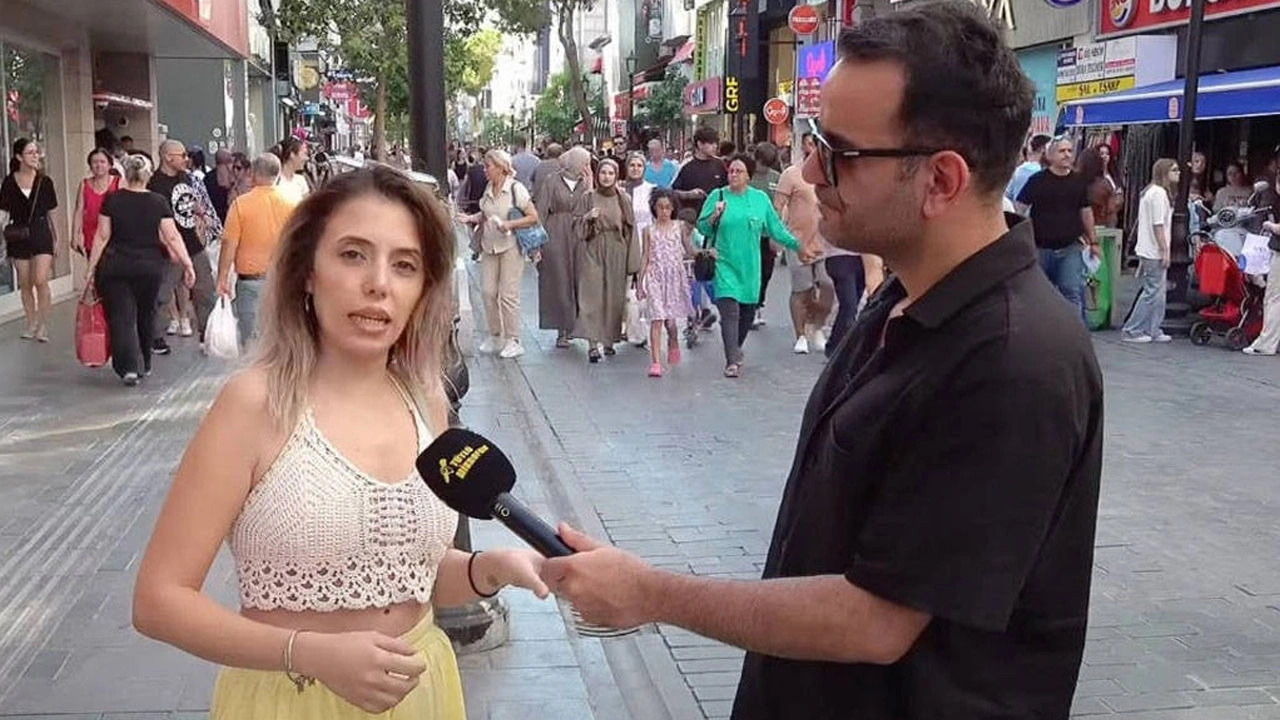
Case studies: From imprisonment to political ascent
The impact of street interviews in Türkiye is vividly illustrated through individual stories that highlight both the risks and opportunities associated with this form of journalism.
Dilruba’s Imprisonment
Dilruba K., a young woman who participated in a street interview conducted by the YouTube channel “Tuylu Mikrofon,” faced severe repercussions for her outspoken criticism of Instagram’s access restrictions. During the interview, Dilruba articulated her concerns about digital censorship and its implications for free speech. Her candid remarks led to her:
- Arrest and detention: Following her interview, Dilruba was detained and subsequently imprisoned for her comments, raising alarms about the suppression of dissenting voices in public discourse.
- Impact on free speech: Dilruba’s case underscores the potential dangers faced by individuals who engage in street interviews that challenge societal norms.
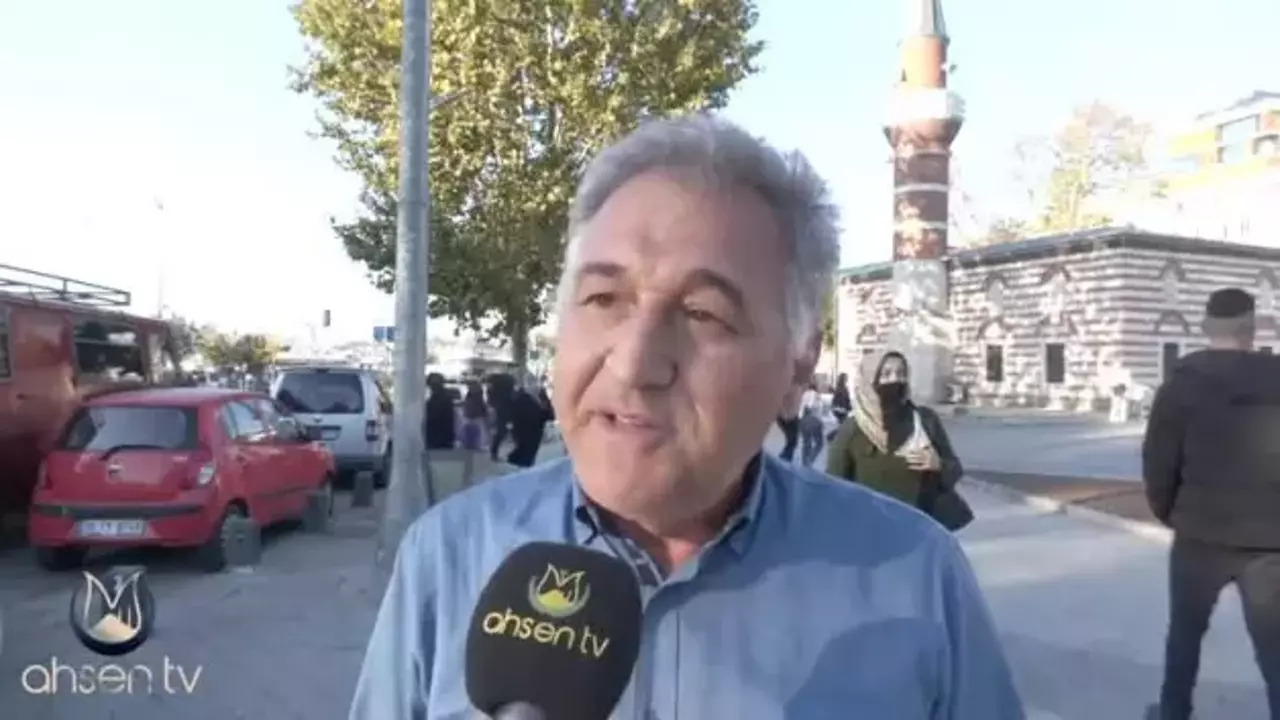
Ibrahim Ufuk Kaynak’s political rise
In contrast to Dilruba’s experience, Ibrahim Ufuk Kaynak’s journey demonstrates the influential power of street interviews in shaping political careers. Kaynak gained widespread recognition through his street interview with Ahsen TV, a channel closely aligned with the government’s ideology. His rise to prominence was marked by:
- Media exposure: Kaynak’s interview resonated with a broad audience, amassing millions of views and establishing him as a credible voice in public discussions.
- Political endorsement: Leveraging his media presence, Kaynak secured a position as a Member of Parliament for the ruling Justice and Development Party (AK Party), illustrating how street interviews can serve as a springboard for political engagement and leadership.
These contrasting narratives highlight the dual-edged nature of street interviews in Türkiye, where they can either empower individuals or subject them to governmental scrutiny.
A response to mainstream media limitations
The meteoric rise of street interviews in Türkiye can be largely attributed to perceived constraints and biases of mainstream media outlets. Traditional media in Türkiye has often been critiqued for:
- Narrow audience targeting: Mainstream channels are perceived to cater to specific demographics, limiting the diversity of viewpoints presented to the public.
- Lack of diverse perspectives: Critics argue that mainstream media often overlooks grassroot opinions, focusing instead on narratives that align with governmental or elite interests.

In response to these limitations, street interviews have filled the void by offering:
- Diverse voices: Street interviews capture a wide range of opinions from various socio-economic backgrounds, providing a more comprehensive picture of public sentiment.
- Accessibility and relatability: Platforms like YouTube have democratized content creation, allowing individuals without formal media training to engage directly with audiences.
- Real-time engagement: Street interviews often address current events and trending topics, making them timely and relevant sources of information.
The popularity of street interviews is driven by several key factors. First, the proliferation of social media platforms has facilitated the widespread dissemination of these interviews, allowing them to reach millions of viewers quickly and efficiently. Additionally, the informal and conversational nature of street interviews fosters a sense of community and engagement among viewers. Lastly, producing street interviews is generally less resource-intensive compared to traditional media productions, enabling more frequent and diverse content to be created.
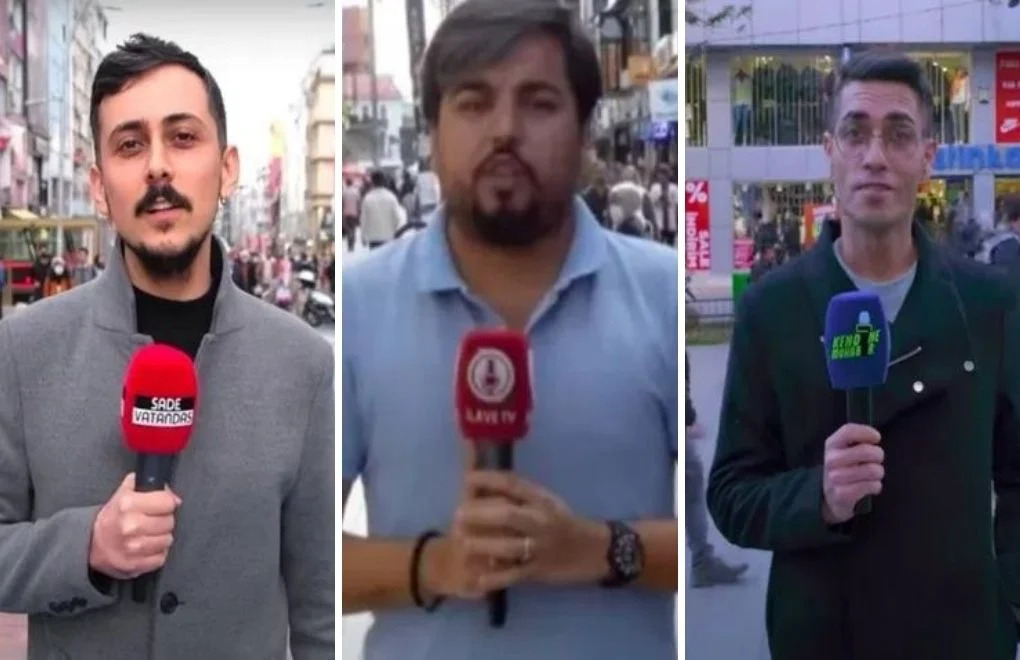
Consequences of censorship and regulation
RTUK’s initiatives to regulate street interviews have significant implications for the media landscape in Türkiye. The potential consequences include:
- Suppression of independent journalism: Stricter regulations may limit the ability of citizen journalists to operate freely, reducing the diversity of voices in the public sphere.
- Impact on media diversity: By imposing constraints on street interviews, RTUK may inadvertently homogenize media content, aligning it more closely with mainstream narratives.
Points of Contention:
- Balance between regulation and freedom: Critics argue that while combating misinformation is essential, it should not come at the expense of suppressing legitimate expressions of dissent and diverse opinions.
The future of street interviews in Türkiye
As RTUK continues to explore regulatory frameworks for street interviews, the future of this journalistic practice in Türkiye remains uncertain. Key considerations include:
- Adaptation by content creators: Street interviewers may need to modify their approach to comply with new regulations, potentially affecting the authenticity and spontaneity of their content.
- Legal and political challenges: Ongoing legal battles and political pressures could shape the operational landscape for street journalists, influencing their ability to report freely.
- Technological innovations: Advances in technology may offer new avenues for street interviews to circumvent restrictions, such as leveraging encrypted platforms or decentralized media networks.
Potential scenarios:
- Increased regulation: RTUK imposes comprehensive rules that significantly restrict street interviews, leading to a decline in their prevalence and diversity.
- Collaborative frameworks: RTUK and street interviewers develop mutually agreeable guidelines that allow for the continued practice of street interviews while addressing concerns about misinformation.
- Expansion of alternative media: In response to increased regulation, alternative media platforms may emerge, further diversifying sources of public discourse.
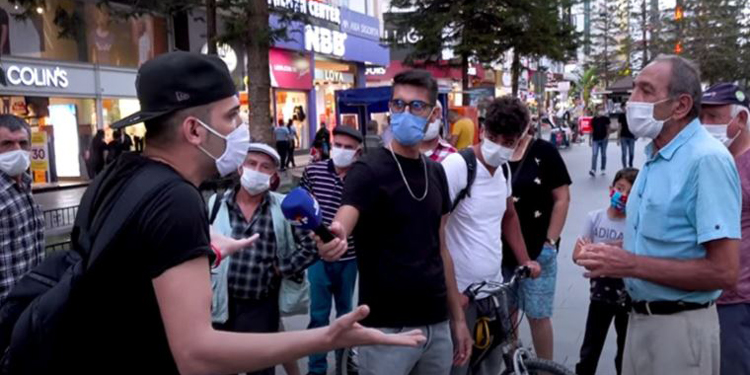
Street interviews at a crossroads in Türkiye’s media landscape
Street interviews in Türkiye have emerged as a vital platform for public expression, offering a counterbalance to the limitations of mainstream media. Through the voices of ordinary citizens, these interviews provide a rich tapestry of perspective that enhance democratic discourse and foster greater societal understanding. However, the increasing regulatory scrutiny by bodies like RTUK poses significant challenges to the sustainability and freedom of this journalistic practice. Balancing the need to prevent misinformation with the imperative to uphold freedom of expression will be crucial in determining the future trajectory of street interviews in Türkiye. As the media landscape continues to evolve, street interviews will likely remain a pivotal element of public dialogue, reflecting the dynamic interplay between citizen journalism and regulatory oversight.
